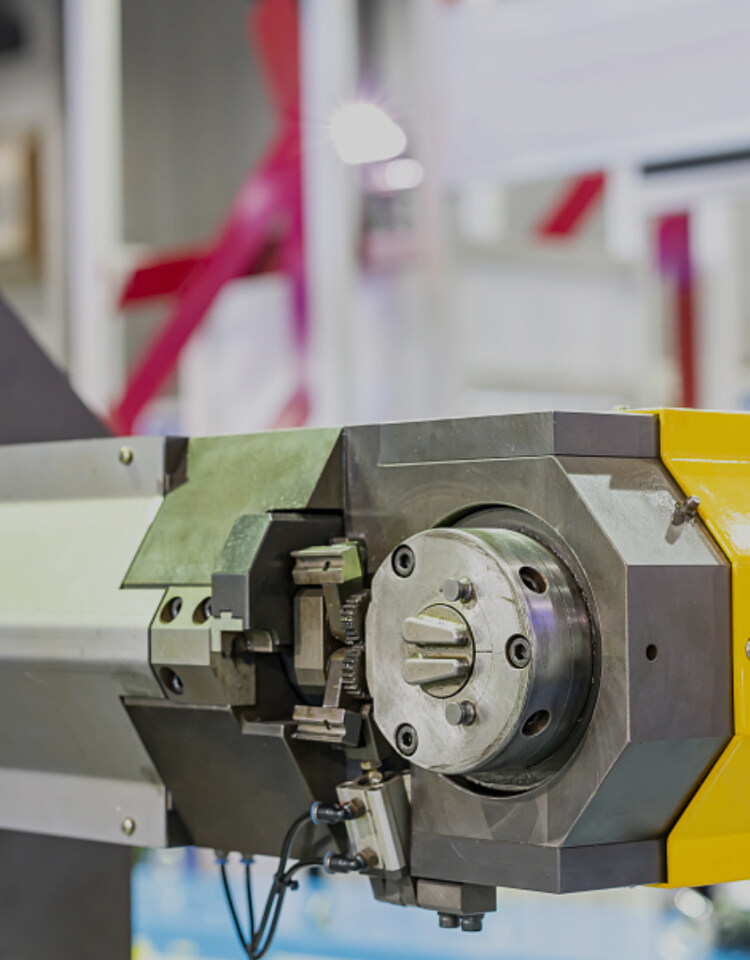Ошибка формата электронной почты
emailCannotEmpty
emailDoesExist
pwdLetterLimtTip
inconsistentPwd
pwdLetterLimtTip
inconsistentPwd

Новости
Новости
Welding Machines Supplier Near Me
Welding Machines Supplier Near Me
Welding machines are essential tools for fusing metal parts together using high heat, filler, and an electrical arc. They are used by professionals, do-it-yourselfers, and artists who work with metal. Whether you're a contractor, fabricator, installer, or simply someone who enjoys working with metal, having the right welding machine is crucial for achieving quality results.
Choosing the right welding machine supplier can be overwhelming, especially with the wide range of options available. We will provide you with valuable insights and tips on how to select the perfect welding machine based on your skill level, the type of welding tasks you'll be performing, and other important factors to consider.
Safety is of utmost importance when working with welding machines. We will discuss the essential welding safety equipment you need, such as welding helmets, welding jackets and aprons, and welding gloves. Additionally, we will provide guidance on how to protect yourself and ensure a safe working environment.
To ensure the longevity and optimal performance of your welding machine, proper maintenance and care are essential. We will share valuable tips on how to maintain your machine, including regular cleaning, inspection, and troubleshooting common issues that may arise.
Stay tuned as we dive into the fascinating world of welding machines and equip you with the knowledge and skills to tackle your welding projects with confidence!
Understanding Welding Machines
Welding machines are essential tools used in various industries and applications to fuse metal parts together. They utilize high heat, filler material, and an electrical arc to create a strong bond between the metal pieces. Understanding how these machines work and their different components is crucial for anyone involved in metalworking, whether they are professionals, do-it-yourselfers, or artists.
At its core, a welding machine consists of three main components: a power source, a welding electrode or wire, and a ground clamp. The power source provides the electrical energy needed to generate the arc, while the electrode or wire acts as a conductor that carries the electric current to the workpiece. The ground clamp completes the electrical circuit by connecting to the metal being welded.
Depending on the specific welding process, different types of welding machines are used. Some common types include stick welders, wire feed welders, and tungsten inert gas (TIG) welders. Stick welders, also known as shielded metal arc welders (SMAW), use a metal stick electrode that melts and forms the weld. Wire feed welders, or gas metal arc welders (GMAW), feed a continuous wire electrode into the weld pool. TIG welders, on the other hand, use a non-consumable tungsten electrode and a separate filler material.
When choosing the right welding machine, it is important to consider factors such as the type of metal being welded, the thickness of the material, and the desired welding technique. Different machines have different capabilities and power outputs, so selecting the appropriate machine for the job is crucial for achieving high-quality welds.
Safety should always be a top priority when working with welding machines. Proper protective equipment, such as welding helmets, gloves, and jackets, should be worn to protect against sparks, UV radiation, and heat. Adequate ventilation is also important to prevent the inhalation of harmful fumes and gases produced during the welding process.
To ensure the longevity and optimal performance of welding machines, regular maintenance and care are necessary. This includes cleaning the machine, inspecting and replacing worn-out parts, and following manufacturer guidelines for storage and usage.
By knowing how these machines work, the different types available, and the safety considerations and maintenance requirements, individuals can make informed decisions when selecting and using welding machines to achieve strong and durable welds.
Types of Welding Machines
When it comes to welding machines, there are several types available on the market. Each type is designed for specific welding tasks and offers unique features and capabilities. In this section, we will explore the different types of welding machines and their applications.
MiG Welders: MiG welders, also known as Metal Inert Gas welders, are commonly used for welding thin to medium-thickness metals. They utilize a consumable wire electrode and a shielding gas to create an electrical arc that melts the wire and fuses it with the base metal. MiG welders are known for their versatility and ease of use, making them suitable for both professionals and beginners.
TIG Welders: TIG welders, or Tungsten Inert Gas welders, are ideal for precise and high-quality welding. They use a non-consumable tungsten electrode and a separate filler metal to create the weld. TIG welding offers excellent control over the heat and allows for welding a wide range of metals, including stainless steel and aluminum. This type of welding is commonly used in industries such as aerospace and automotive.
Multi-Process Welders: As the name suggests, multi-process welders are capable of performing multiple welding techniques, including MiG, TIG, and stick welding. These versatile machines are suitable for professionals who need to handle different welding tasks without investing in separate machines. Multi-process welders offer convenience and flexibility, allowing users to switch between welding processes easily.
Arc/TIG Welding Machines: Arc/TIG welding machines combine the functionality of both arc welding and TIG welding. They are designed to provide the benefits of both processes, making them suitable for a wide range of applications. These machines are commonly used in industries such as construction, fabrication, and repair.
Plasma Cutters: While not technically welding machines, plasma cutters are often used in conjunction with welding. These machines use a high-velocity jet of ionized gas to cut through metal. Plasma cutters are ideal for precision cutting and can be used to create intricate shapes and designs. They are commonly used in industries such as automotive, HVAC, and metal fabrication.
When choosing a welding machine, it is important to consider the specific requirements of your welding projects. Factors such as the type of metal, thickness, and desired weld quality will influence the type of welding machine that is most suitable. Additionally, it is essential to ensure that the machine is compatible with the power supply available in your workspace.
Whether you are a professional metalworker or a DIY enthusiast, there is a welding machine out there that can help you achieve your welding goals. Consider the specific features and capabilities of each type of machine, and choose one that aligns with your requirements and expertise.
Choosing the Right Welding Machine
When it comes to choosing the right welding machine, there are several factors to consider. The welding machine you choose will depend on the type of welding you will be doing, the materials you will be working with, and the specific requirements of your projects. Here are some key points to keep in mind when selecting a welding machine:
Welding Process: The first step in choosing the right welding machine is to determine the welding process you will be using. There are different types of welding processes, such as MIG/MAG, TIG, and MMA, each with its own advantages and applications. Consider the type of weld you need to create and the materials you will be working with to determine the most suitable welding process.
Power Source: Welding machines can be powered by different sources, including electricity, gas, or a combination of both. Consider the availability and cost of the power source in your area, as well as the portability requirements of your projects. Electric welding machines are commonly used for domestic and light industrial applications, while gas-powered machines are more suitable for heavy-duty and outdoor projects.
Amperage Range: The amperage range of a welding machine determines its welding capacity. Consider the thickness and type of materials you will be welding to ensure that the machine you choose has a suitable amperage range. It is important to have a machine that can provide enough power for your welding needs without being too overpowering.
Duty Cycle: The duty cycle refers to the amount of time a welding machine can operate continuously before it needs to cool down. It is important to choose a welding machine with a duty cycle that matches your project requirements. A higher duty cycle means that the machine can operate for longer periods without overheating, making it ideal for heavy-duty applications.
Portability: Consider the portability of the welding machine, especially if you will be working on different job sites. Portable welding machines are lightweight and compact, making them easy to transport and maneuver. They are ideal for contractors and DIYers who need to move their equipment frequently.
Brand and Quality: It is important to choose a welding machine from a reputable brand that offers reliable and high-quality products. Look for manufacturers that have a good reputation in the industry and provide warranties for their machines. Investing in a quality welding machine will ensure better performance, durability, and safety.
Budget: Finally, consider your budget when choosing a welding machine. Determine how much you are willing to spend and compare prices from different suppliers. Keep in mind that while it may be tempting to choose a cheaper option, it is important to prioritize quality and reliability over cost.
By considering these factors, you can choose the right welding machine that meets your specific needs and ensures the success of your welding projects. Remember to also refer to the manufacturer's guidelines and consult with welding experts for additional guidance and recommendations.
Click Here To Know More About CNC MACHINE

